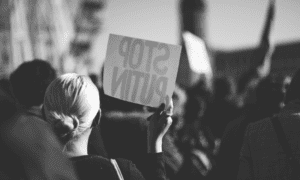Russia’s motives behind the Ukraine invasion can be analysed under different lenses. One of the most telling lenses looks past Russia’s cultural claims, as well as their fear of NATO expansion, and focuses on the economic interests of Russia. The energy industry may have contributed to their decision to attack Ukraine, but it will suffer due to the conflict.
The European Union relies on Russian energy imports with 32% of their gas originating from Russia in 2021. Pipelines carry this gas from the northern wilderness of Siberia to bustling European cities like Berlin, Frankfurt, and Prague. With this figure in mind, it is clear that Europe cannot easily forgo using Russian gas without facing grave economic consequences. There are renewable energy options available, but none developed to the capacity necessary to make up for their reliance on Russia’s exports. Instead, European nations will rely on stockpiles of fuel. The International Energy Agency agreed upon the release of 60 million barrels of oil to make up for the growing unreliability of Russian gas supplies. European nations can lessen their dependence on Russian gas and oil, but it may take ten years before they can abandon it.
Due to the conflict, energy prices have risen and are expected to continue rising. Until Europe adjusts to alternative sources of energy, the sanctions against Russian exports will lead to uncertainty in the energy industry and price shocks for the average consumer. The BBC reports oil prices at their highest point since 2014. The increasing cost of energy will have a cascade effect on other industries, namely the food industry. If left unchecked, the situation will likely lead to increased inflation as a multitude of products, including necessities, will experience a rise in prices. Even products indirectly reliant on energy prices could see spikes in cost as production and transportation become more expensive.
Russia stands to lose just as much as Europe. Russia relies heavily on its gas and oil industries, with the exports making up for as much as 50% of Russia’s government budget. The country is the second-largest exporter of crude oil and the largest exporter of natural gas. As the conflict between Ukraine and Russia is driving valuable business with European nations away, Russia will be forced to export elsewhere. A thirty-year contract with China has the potential to keep trade flowing for Russia instead of business with Europe. Due to the negative global response toward the conflict, their currency is also plummeting in value.
It remains unclear why Putin decided to attack Ukraine considering the potential economic recoil, but it may have been a desperate, defensive measure. One of Russia’s largest pipelines, a vein contributing to their lucrative trade with Europe, runs straight through Ukraine. Since Ukraine gained independence from Russia, they have taxed the use of the pipeline. At the same time, Ukraine has identified natural energy deposits within their territory that threatens Russia’s industry on the European continent. When Russia seized Crimea in 2014, it obtained access to highly profitable oil reserves within the Black Sea.
The invasion significantly limits Ukraine’s ability to exploit these resources, leaving Russia the dominant exporter in the region. Putin may have felt striking Ukraine before they became a part of NATO was the best option to protect an industry that he felt was being encroached on. Still, he will argue that the conflict is based solely on cultural claims
Whatever the reasons behind the conflict’s initiation, both European and Russian economies will experience severe strain for the foreseeable future.







